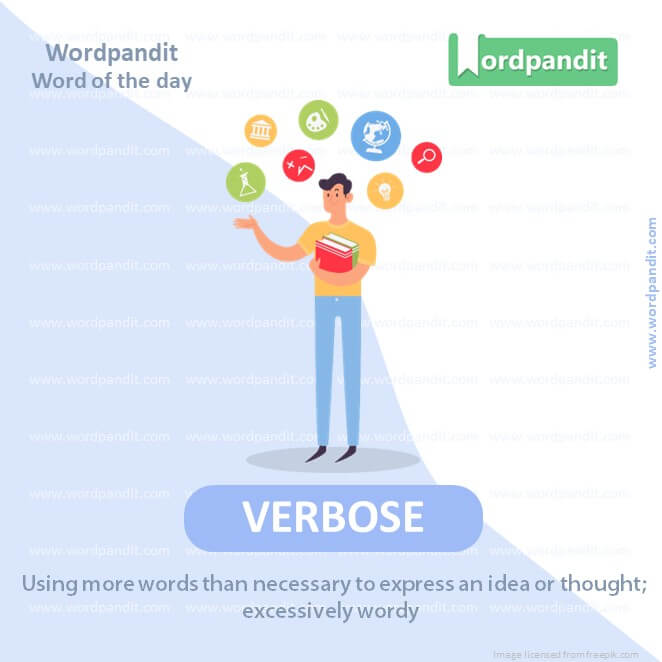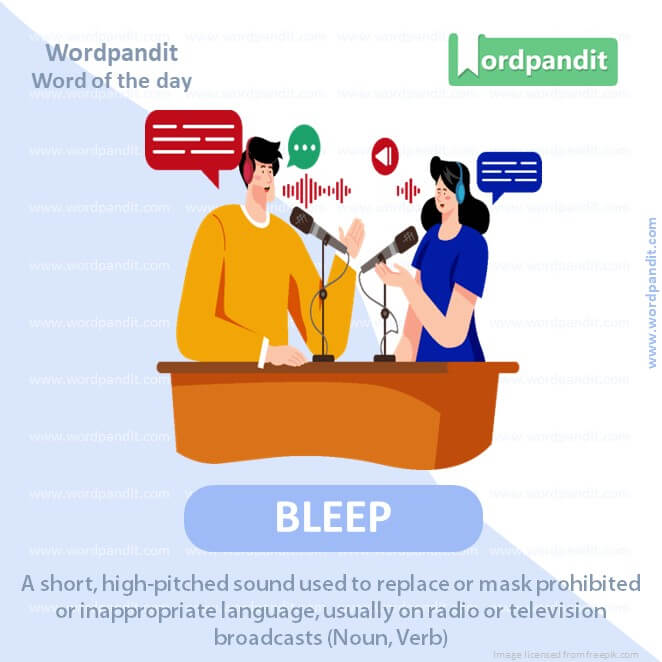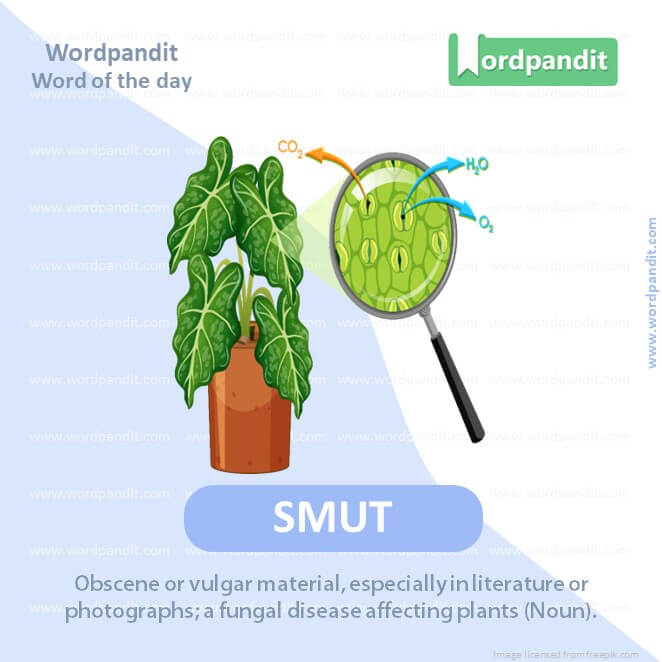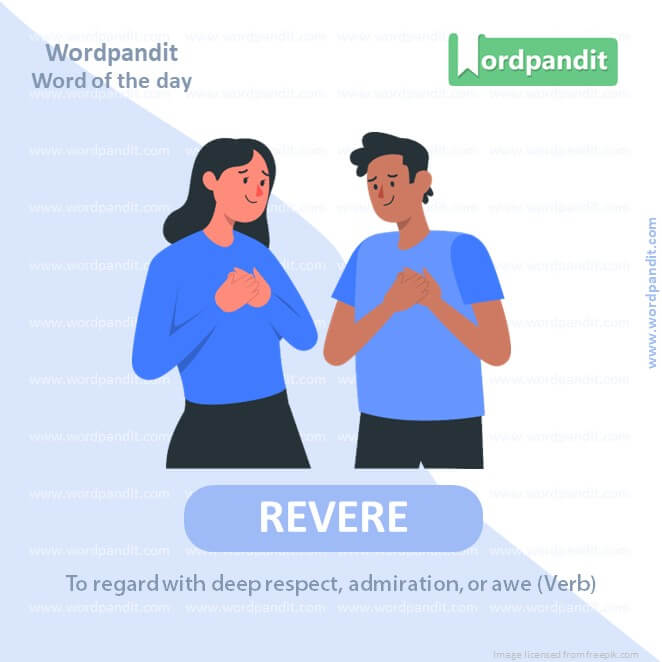Daily Vocabulary Words: List of Daily Used Words in Leading Indian Newspapers
Hi there. Welcome to this special section @ Wordpandit. Our endeavour here is straightforward: highlighting daily vocabulary words that you would come across in leading newspapers in the country. We have included the following newspapers in our selection:
• The Times of India
• The Economic Times
• Hindustan Times
• Mint
• Indian Express
We are putting in extensive work to develop your vocabulary. All you have to do is be regular with this section and check out this post daily. This is your repository of commonly used words; essentially, we are posting a list of daily used words. Hence, this has significant practical application as it teaches you words that are commonly used in leading publications mentioned above.
Visit the website daily to learn words from leading Indian newspapers.

WORD-1: VERBOSE
CONTEXT: ‘Sex it up,’ Shakespeare was probably told by actors’ company Lord Chamberlain’s Men about the dialogues he began to write around 1585. His plays, to all the Indians who have had to study them purely for marks, can sound verbose and affected.
SOURCE: The Times of India
EXPLANATORY PARAGRAPH: “Verbose” is a fancy word that means talking or writing a lot, but not really getting to the point quickly. You know how sometimes Grandma tells a really, really long story when she could just say it in a few words? That’s being verbose!
MEANING: Using more words than necessary to express an idea or thought; excessively wordy (Adjective).
PRONUNCIATION: vur-BOHS
SYNONYMS: Wordy, long-winded, loquacious, prolix, rambling
USAGE EXAMPLES:
1. The teacher asked him to revise his verbose essay.
2. The verbose speaker lost the audience’s interest.
3. She was so verbose that she took an hour to explain a simple concept.
4. The instructions were verbose and confusing.

WORD-2: BLEEP
CONTEXT: It is only when schools in Florida started to bleep out paras that we realised how prime smut had passed us by. Apparently, Shakespeare was cleverly smuggling out X-rated content in a vocab our parents claimed to revere. Was he passing off bawdy as profound prose right under their nose?
SOURCE: The Times of India
EXPLANATORY PARAGRAPH: “Bleep” is the sound you hear when someone says a bad word on TV and it gets covered up so kids like you can’t hear it. It’s also a word to say that the bad word got covered up, like, “They bleeped out the word.”
MEANING: A short, high-pitched sound used to replace, or mask prohibited or inappropriate language, usually on radio or television broadcasts (Noun, Verb).
PRONUNCIATION: bleep
SYNONYMS: Censor, mute, beep, silence, mask
USAGE EXAMPLES:
1. The radio station decided to bleep out the profanity in the song.
2. We heard a bleep when the actor used a curse word.
3. The device emitted a bleep when it was turned on.
4. They bleeped the controversial comments during the live show.

WORD-3: SMUT
CONTEXT: It is only when schools in Florida started to bleep out paras that we realised how prime smut had passed us by. Apparently, Shakespeare was cleverly smuggling out X-rated content in a vocab our parents claimed to revere. Was he passing off bawdy as profound prose right under their nose?
SOURCE: The Times of India
EXPLANATORY PARAGRAPH: “Smut” is a word for things that are not appropriate to look at or read, like pictures or words that are not for kids. It’s also the name for a kind of dirt or stain on a plant.
MEANING: Obscene or vulgar material, especially in literature or photographs; a fungal disease affecting plants (Noun).
PRONUNCIATION: smuht
SYNONYMS: Filth, obscenity, lewdness, dirt, indecency
USAGE EXAMPLES:
1. The magazine was full of smut and was not suitable for children.
2. The farmer was worried about smut affecting his corn crop.
3. The website was taken down because it hosted smut.
4. She erased the smut from her drawing.

WORD-4: REVERE
CONTEXT: It is only when schools in Florida started to bleep out paras that we realised how prime smut had passed us by. Apparently, Shakespeare was cleverly smuggling out X-rated content in a vocab our parents claimed to revere. Was he passing off bawdy as profound prose right under their nose?
SOURCE: The Times of India
EXPLANATORY PARAGRAPH: To “revere” someone means to really, really like them and think they’re super special. Like, you might revere your favorite superhero because they are strong and always save the day!
MEANING: To regard with deep respect, admiration, or awe (Verb).
PRONUNCIATION: ri-VEER
SYNONYMS: Admire, respect, honor, worship, venerate
USAGE EXAMPLES:
1. Many people revere Mother Teresa for her charitable work.
2. He revered his grandfather as a war hero.
3. The artist is revered for her unique style.
4. Children often revere their favorite athletes.

WORD-5: PROFOUND
CONTEXT: It is only when schools in Florida started to bleep out paras that we realised how prime smut had passed us by. Apparently, Shakespeare was cleverly smuggling out X-rated content in a vocab our parents claimed to revere. Was he passing off bawdy as profound prose right under their nose?
SOURCE: The Times of India
EXPLANATORY PARAGRAPH: “Profound” means something that is really, really deep or important. If someone says something that makes you think a lot, you can say it was profound.
MEANING: Having deep insight or understanding; of great significance or depth (Adjective).
PRONUNCIATION: pruh-FOUND
SYNONYMS: Deep, meaningful, insightful,
thoughtful, significant
USAGE EXAMPLES:
1. The professor gave a profound lecture on human rights.
2. She felt a profound sense of loss after her pet passed away.
3. The movie had a profound impact on me.
4. His profound words inspired the entire audience.
WORD-6: ENDANGERED
CONTEXT: Last year, the US Fish and Wildlife Service listed the emperor penguin as endangered. The fact that they and other penguin species are in trouble poses a thorny philosophical question: Why should people care about disappearing species?
SOURCE: Livemint
EXPLANATORY PARAGRAPH: “Endangered” means something or someone is in danger of going away forever, like some animals who don’t have enough places to live anymore.
MEANING: At risk of becoming extinct or disappearing, often due to environmental factors or human activities (Adjective).
PRONUNCIATION: en-DAYN-jurd
SYNONYMS: Threatened, at risk, vulnerable, imperiled, jeopardized
USAGE EXAMPLES:
1. The panda is an endangered species.
2. Deforestation has endangered many types of birds.
3. The old building is endangered and might be torn down.
4. Polluted water endangered the fish in the lake.
WORD-7: CONFRONTING
CONTEXT: Last year, the US Fish and Wildlife Service listed the emperor penguin as endangered. Often when confronting the public with critically endangered frogs or disappearing rain forest plants, scientists will warn people that some useful compound, maybe a cure for cancer, could be lurking within them.
SOURCE: Livemint
EXPLANATORY PARAGRAPH: “Confronting” means facing something that is hard or scary, like when you have to tell someone they did something wrong.
MEANING: Challenging, facing, or dealing with a difficult or uncomfortable situation or person (Adjective, Verb).
PRONUNCIATION: kun-FRUN-ting
SYNONYMS: Facing, challenging, opposing, tackling, encountering
USAGE EXAMPLES:
1. Confronting the bully took a lot of courage.
2. The confronting issue was discussed in the meeting.
3. She found the subject matter of the film confronting.
4. He spent years confronting his fears.
WORD-8: LURKING
CONTEXT: Often when confronting the public with critically endangered frogs or disappearing rain forest plants, scientists will warn people that some useful compound, maybe a cure for cancer, could be lurking within them.
SOURCE: Livemint
EXPLANATORY PARAGRAPH: “Lurking” means hiding and waiting, usually for something to happen or to surprise someone. Like playing hide-and-seek, but sometimes it can be for not-so-nice reasons.
MEANING: Remaining hidden so as to wait in ambush; present but not obvious (Verb, Adjective).
PRONUNCIATION: LUR-king
SYNONYMS: Hiding, skulking, sneaking, prowling, stalking
USAGE EXAMPLES:
1. The cat was lurking behind the sofa, waiting to pounce.
2. There are always dangers lurking on the internet.
3. She had a lurking suspicion that something was wrong.
4. The villain was lurking in the shadows.
WORD-9: IMMINENT
CONTEXT: The penguins’ failed breeding, published recently in Nature Communications, Earth and Environment isn’t pointing to imminent extinction, but does show that if global warming continues unabated, there will be little hope for any species that depends on sea ice to hold through polar winters.
SOURCE: Livemint
EXPLANATORY PARAGRAPH: “Imminent” means something is going to happen very, very soon. Like when it gets really dark and windy, you can say a storm is imminent, meaning it’s about to start any minute.
MEANING: About to happen; very near in time (Adjective).
PRONUNCIATION: IM-uh-nent
SYNONYMS: Approaching, impending, near, forthcoming, upcoming
USAGE EXAMPLES:
1. The weather report said that snow is imminent.
2. With dark clouds gathering, rain was imminent.
3. He left the building when he realized danger was imminent.
4. The team’s victory was imminent as they led by a large margin.
WORD-10: UNABATED
CONTEXT: The penguins’ failed breeding, published recently in Nature Communications, Earth and Environment isn’t pointing to imminent extinction, but does show that if global warming continues unabated, there will be little hope for any species that depends on sea ice to hold through polar winters.
SOURCE: Livemint
EXPLANATORY PARAGRAPH: “Unabated” means something keeps going and doesn’t get weaker or stop. Like if you keep jumping on a trampoline and don’t get tired, your energy is unabated!
MEANING: Continuing without becoming weaker, less severe, or less intense (Adjective).
PRONUNCIATION: uhn-uh-BAY-tid
SYNONYMS: Constant, relentless, unrelenting, unceasing, continuous
USAGE EXAMPLES:
1. The storm continued unabated for hours.
2. Her enthusiasm for the project remained unabated.
3. The noise from the party was unabated, even after midnight.
4. Despite difficulties, his dedication to the cause was unabated.
Vocabulary
The power of language lies in its vast spectrum of words, and developing strong vocabulary skills is central to accurate and dynamic communication. A robust vocabulary helps to express thoughts clearly, understand complex texts, and leaves a lasting impression on the listener or reader. However, enhancing your vocabulary is not always an easy task. In this article, let’s delve into effective strategies for vocabulary improvement and vocabulary building – with an emphasis on English vocabulary.
One of the best ways to enhance your vocabulary is by embracing reading — a powerful vocabulary builder. Be it novels, newspapers, blogs, or academic articles, each genre exposes you to a unique set of vocabulary words and context of usage. Encouraging yourself to explore different writing styles and subjects helps diversify your English vocabulary, making it more comprehensive and adaptable.
Using a vocabulary book or a digital language learning app can streamline the process of vocabulary learning. These tools often contain lists of common vocabulary words, word meanings, synonyms, and antonyms, and they serve as a one-stop resource for vocabulary improvement. Apps may also offer flashcards and quizzes, which can be particularly helpful in testing and reinforcing new vocabulary knowledge.
Contextual vocabulary learning is another useful strategy. Our brains are naturally inclined towards understanding words in the context of a sentence or paragraph, and this can aid in vocabulary building. Doing so imbues the words with a pragmatic sense of meaning that goes beyond the theoretical definition, making the newly learned vocabulary more impactful and memorable.
Utilizing online resources such as vocabulary worksheets, crosswords, and word puzzles can also enhance vocabulary skills. These activities not only make vocabulary learning enjoyable but also offer an opportunity for active learning, where the vocabulary words are employed and practiced, cementing them into long-term memory.
The next step to effective vocabulary improvement is consistent application. Writing exercises, participating in debates or discussions, or simply conversing in English forces you to use new words, enabling smoother transition of these new additions from passive vocabulary (words you understand) to active vocabulary (words you use).
Meanwhile, the use of mnemonic devices or word associations can aid in remembering the meanings of complex words. Creating vivid mental images linked to a word’s meaning make it easier to recall when needed and can significantly enhance vocabulary retention.
In addition to this, exploring the world of prefixes, suffixes, and root words can unlock many new words, making it a very effective tool in vocabulary building. Understanding the common roots and their meanings can help decipher unfamiliar words and expand your existing vocabulary.
Lastly, cultivating a language learning environment can have an enormous impact. Engaging in a community of language learners, subscribing to a ‘word-of-the-day’ service, or simply keeping a dictionary handy can foster vocabulary improvement in your daily life.
In closing, vocabulary enhancement is a gradual process that involves a synergy of reading, using vocabulary resources, understanding contextual meanings, active application, mnemonic devices, understanding word roots, and creating a language-friendly environment. While it requires effort and dedication, the outcome is a polished, effective, and expressive command of language that opens endless vistas of communication and understanding.













